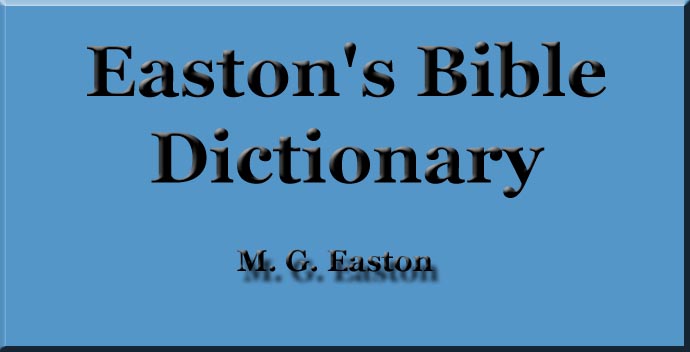

Coney (Heb. shaphan ; i.e., "the hider"), an animal which inhabits the mountain gorges and the rocky districts of Arabia Petraea and the Holy Land. "The conies are but a feeble folk, yet make they their houses in the rocks" (Pro 30:26; Psa 104:18). They are gregarious, and "exceeding wise" (Pro 30:24), and are described as chewing the cud (Lev 11:5; Deu 14:7). The animal intended by this name is known among naturalists as the Hyrax Syriacus. It is neither a ruminant nor a rodent, but is regarded as akin to the rhinoceros. When it is said to "chew the cud," the Hebrew word so used does not necessarily imply the possession of a ruminant stomach. "The lawgiver speaks according to appearances; and no one can watch the constant motion of the little creature's jaws, as it sits continually working its teeth, without recognizing the naturalness of the expression" (Tristram, Natural History of the Bible). It is about the size and colour of a rabbit, though clumsier in structure, and without a tail. Its feet are not formed for digging, and therefore it has its home not in burrows but in the clefts of the rocks. "Coney" is an obsolete English word for "rabbit."
Confection (Exo 30:35, "ointment" in Exo 30:25; R.V., "perfume"). The Hebrew word so rendered is derived from a root meaning to compound oil and perfume.
Confectionaries Only in Sa1 8:13, those who make confections, i.e., perfumers, who compound species and perfumes.
Confession (1.) An open profession of faith (Luk 12:8). (2.) An acknowledment of sins to God (Lev 16:21; Ezr 9:5; Dan 9:3), and to a neighbour whom we have wronged (Jam 5:16; Mat 18:15).
Congregation (Heb. kahal ), the Hebrew people collectively as a holy community (Num 15:15). Every circumcised Hebrew from twenty years old and upward was a member of the congregation. Strangers resident in the land, if circumcised, were, with certain exceptions (Exo 12:19; Num 9:14; Deu 23:1), admitted to the privileges of citizenship, and spoken of as members of the congregation (Exo 12:19; Num 9:14; Num 15:15). The congregation were summonded together by the sound of two silver trumpets, and they met at the door of the tabernacle (Num 10:3]) These assemblies were convened for the purpose of engaging in solemn religious services (Exo 12:27; Num 25:6; Joe 2:15), or of receiving new commandments (Exo 19:7, Exo 19:8). The elders, who were summonded by the sound of one trumpet (Num 10:4), represented on various occasions the whole congregation (Exo 3:16; Exo 12:21; Exo 17:5; Exo 24:1). After the conquest of Canaan, the people were assembled only on occasions of the highest national importance (Judg. 20; Ch2 30:5; Ch2 34:29; Sa1 10:17; Sa2 5:1; Kg1 12:20; Kg2 11:19; Kg2 21:24; Kg2 23:30). In subsequent times the congregation was represented by the Sanhedrim; and the name synagogue, applied in the Septuagint version exclusively to the congregation, came to be used to denote the places of worship established by the Jews. (See CHURCH.) In Act 13:43, where alone it occurs in the New Testament, it is the same word as that rendered "synagogue" (q.v.) in Act 13:42, and is so rendered in Act 13:43 in R.V.
Congregation, Mount of the (Isa 14:13), has been supposed to refer to the place where God promised to meet with his people (Exo 25:22; Exo 29:42, Exo 29:43) i.e., the mount of the Divine presence, Mount Zion. But here the king of Babylon must be taken as expressing himself according to his own heathen notions, and not according to those of the Jews. The "mount of the congregation" will therefore in this case mean the northern mountain, supposed by the Babylonians to be the meeting-place of their gods. In the Babylonian inscriptions mention is made of a mountain which is described as "the mighty mountain of Bel, whose head rivals heaven, whose root is the holy deep."This mountain was regarded in their mythology as the place where the gods had their seat.
Conscience That faculty of the mind, or inborn sense of right and wrong, by which we judge of the moral character of human conduct. It is common to all men. Like all our other faculties, it has been perverted by the Fall (Joh 16:2; Act 26:9; Rom 2:15). It is spoken of as "defiled" (Tit 1:15), and "seared" (Ti1 4:2). A "conscience void of offence" is to be sought and cultivated (Act 24:16; Rom 9:1; Co2 1:12; Ti1 1:5, Ti1 1:19; Pe1 3:21).
Consecration The devoting or setting apart of anything to the worship or service of God. The race of Abraham and the tribe of Levi were thus consecrated (Exo 13:2, Exo 13:12, Exo 13:15; Num 3:12). The Hebrews devoted their fields and cattle, and sometimes the spoils of war, to the Lord (Lev 27:28, Lev 27:29). According to the Mosaic law the first-born both of man and beast were consecrated to God. In the New Testament, Christians are regarded as consecrated to the Lord (Pe1 2:9).
Consolation of Israel A name for the Messiah in common use among the Jews, probably suggested by Isa 12:1; Isa 49:13. The Greek word thus rendered (Luk 2:25, paraklesis ) is kindred to that translated "Comforter" in Joh 14:16, etc. parakletos .
Constellation A cluster of stars, or stars which appear to be near each other in the heavens, and which astronomers have reduced to certain figures (as the "Great Bear," the "Bull," etc.) for the sake of classification and of memory. In Isa 13:10, where this word only occurs, it is the rendering of the Hebrew kesil i.e., "fool." This was the Hebrew name of the constellation Orion (Job 9:9; Job 38:31), a constellation which represented Nimrod, the symbol of folly and impiety. The word some interpret by "the giant" in this place, "some heaven-daring rebel who was chained to the sky for his impiety."